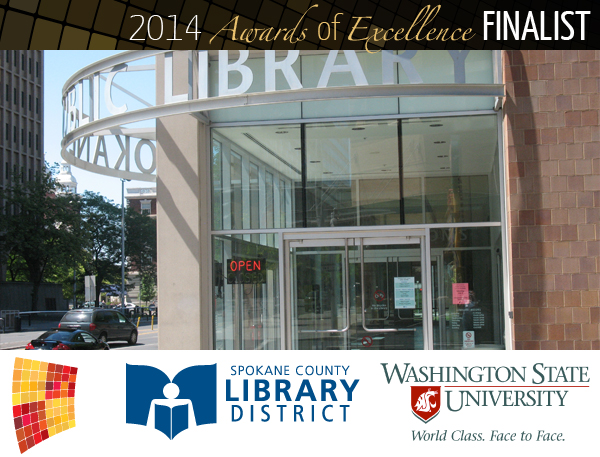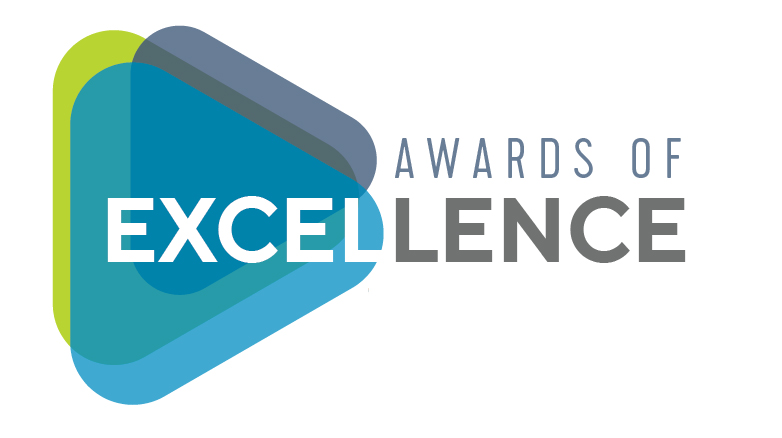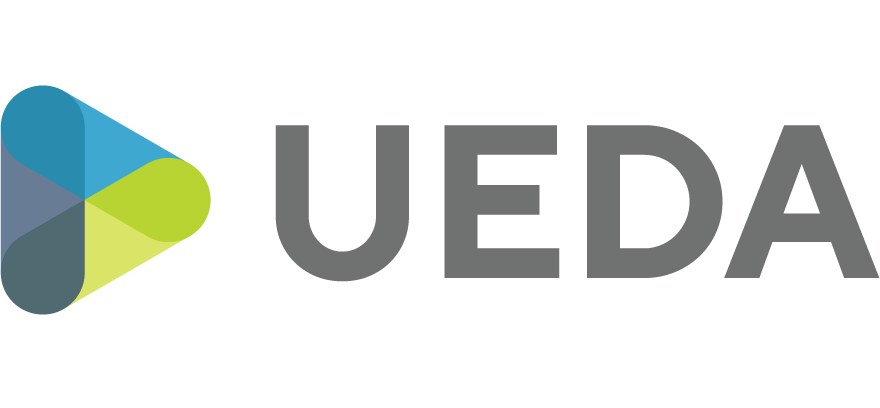Network

| Award Category: | Research and Analysis |
| Project Site: | Spokane’s Business Library |
| Submitted By: | Washington State University |
| Contact: | Mark Pond , 509.444.5312 |
Case Study
Abstract
If we truly live in the Information Age, businesses need to start acting like it. The Spokane Public Library and the Spokane County Library District (Spokane area’s two public library systems) are at the forefront of bringing high quality business information to our local community. For free.
Regardless of whether your business is online or bricks and mortar…service or product…start-up or 5th generation…B2B or B2C… manufacturer or wholesaler or retailer… sole proprietor, partnership or corporation, there are several essential topics all businesses need to constantly assess:
1. Who is my target market?
2. Where is my target market?
3. What are the demographics of my market?
4. Is there demand for what I’m selling?
5. Who are my competitors?
6. What are the important trends within my industry?
7. Where the heck is my research staff?!
There are as many answers to the first six topics as there are numbers of businesses. But the clear and consistent answer to item #7 is Spokane’s public libraries. The library has the staff, the tools and the experience to act as Spokane’s business information sherpa. We carry the weight, we show the path, and we take the pain out of business research.
Combining free access to online business resources (a $50,000 annual public resource) with knowledgeable library staff to help guide entrepreneurs and business owners, the public library offers Spokane’s businesses an exclusive and significant competitive edge.
Problem/Background
The need for a comprehensive business research service sprang from several different sources. Primarily, any business community needs access to high-quality business information but they don’t know where to find it and if they do, it is frequently cost prohibitive.
The second need had to do with Spokane’s local geography and the service-area boundaries for the city and county public library systems. Local business information seekers were consistently being frustrated by living in the County library’s service-area but needing access to the City library’s resources, and vice versa. With Spokane being a fairly small geographic region (it’s not that hard to drive through town in fifteen minutes) it significantly simplified the user experience to extend the reach of spokanebusiness.org beyond the city boundaries and make it available to the entire county.
Solution
After an extensive period of database trials, the library settled on the list of resources available at spokanebusiness.org. The collaboration between the Spokane Public Library and the Spokane County Library District led to a single access site with a matching suite of resources. With the new website in place, Spokane area residents, regardless of their residency location, have remote, online access to one of the top business research collections of any public library in the nation.
Compiling resources for conducting competitive analysis, developing sales leads lists, researching industry trends, demographics, accessing business training, etc., all within one platform solved the issue of finding key business information. Making it publicly accessible removed the prior substantial cost barriers.
To our knowledge, there is no other public library system in the nation (outside the New York Public Library) that offers such a comprehensive suite of business research resources. Nor is there a shared resources platform such as this that cuts across political and library service-area boundaries.
Results
As one example, the Spokane Public Library paid $9,000 in late January, 2014, for our annual subscription to IBISWorld, an industry research database. After six months of usage the library had already distributed over $288,000 worth of IBISWorld reports to the Spokane business community. That’s a 31x return on our investment. In six months.
The local business community has recognized the value of the public library’s resources and we are consistently being consulted by the local Small Business Administration, Greater Spokane, Inc. (our local chamber/economic development council), our community colleges, our universities and business assistance organizations. Not only are these institutions turning to the public library for assistance, but they are actively seeking us out for collaborative efforts and referring clients to us.
This type of exposure not only results in a stronger and more vibrant business community, it also translates into increased local support for the public library.
Future Considerations
As it currently stands, this is a model that can be quickly and relatively easily instituted at public libraries across the nation. The Spokane Public Library is now spending just over 5% of our annual materials budget on the business resources available at spokanebusiness.org. Given that the price public libraries pay for these resources is primarily dependent upon the population served, that spending percentage should roughly hold true for public libraries across the nation. 5% is not an unreasonable amount to spend to serve a regional business community. Finally, this is an a la carte offering. If a resource wouldn’t be utilized within a particular region, that library wouldn’t have to purchase it.
spokanebusiness.org is the baseline platform for future business information enhancements. The next step is to work with the Spokane business community to discover what other informational products would be beneficial (a Bloomberg terminal is on the current list). The library will act as the collaborative hub to secure the funding and provide public access to the resources. Think of it as crowdsourcing business information, with the public library acting as the facilitator. We feel there is ample space there for the library to explore.
Finalist Presentation
UEDA Awards of Excellence Finalists presented at the Annual Summit in Santa Fe on September 29-30, 2014. Summit attendees then voted for the best initiative in each category.

